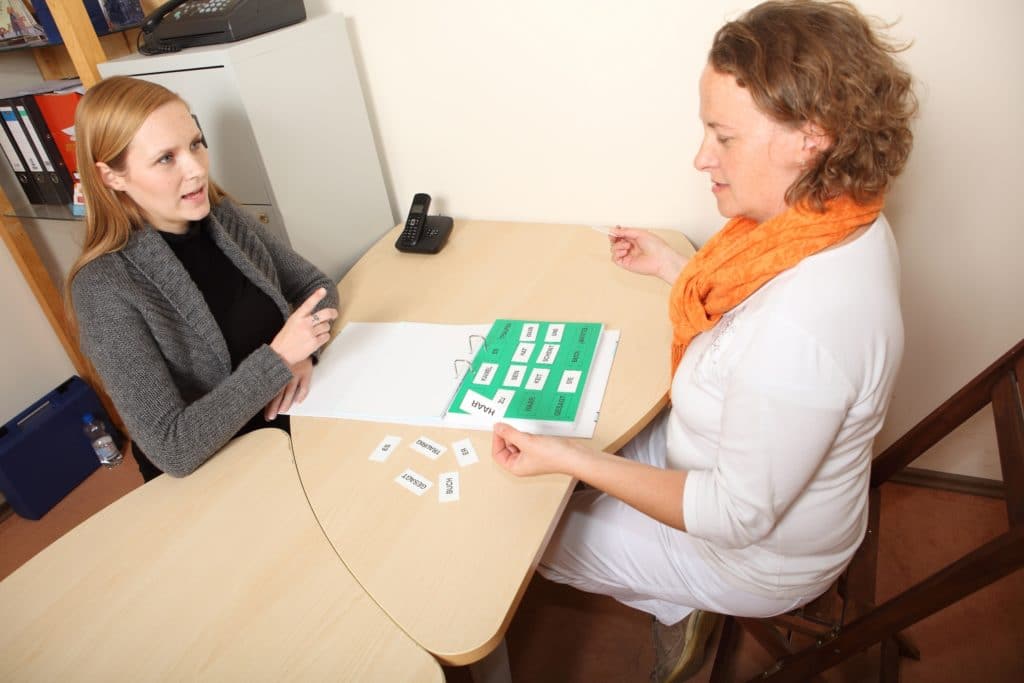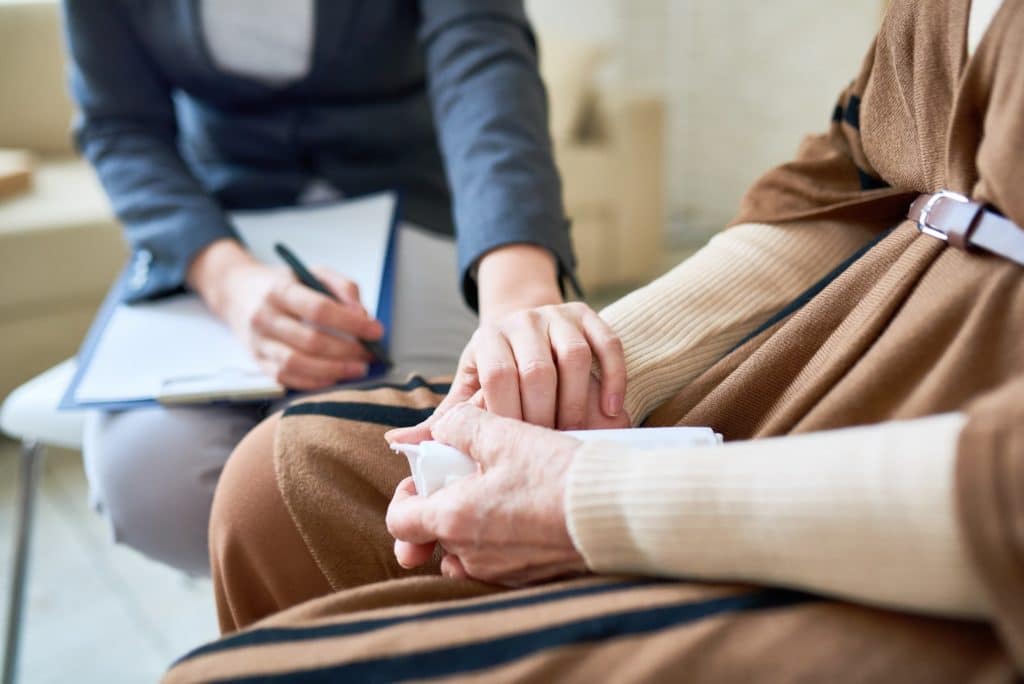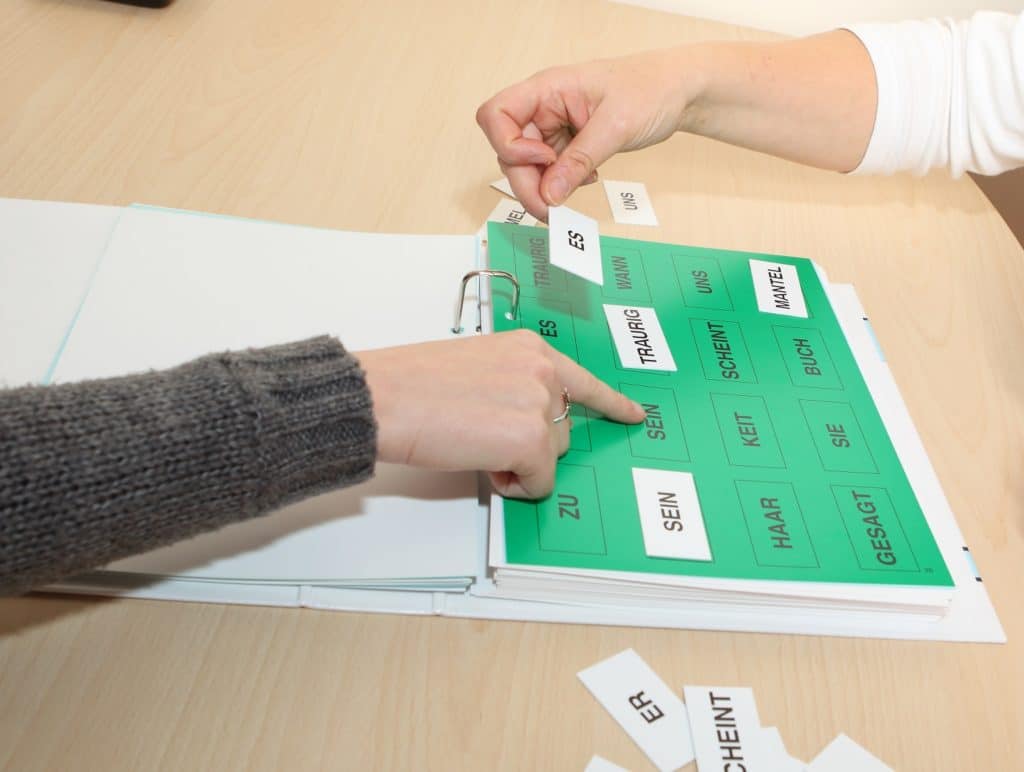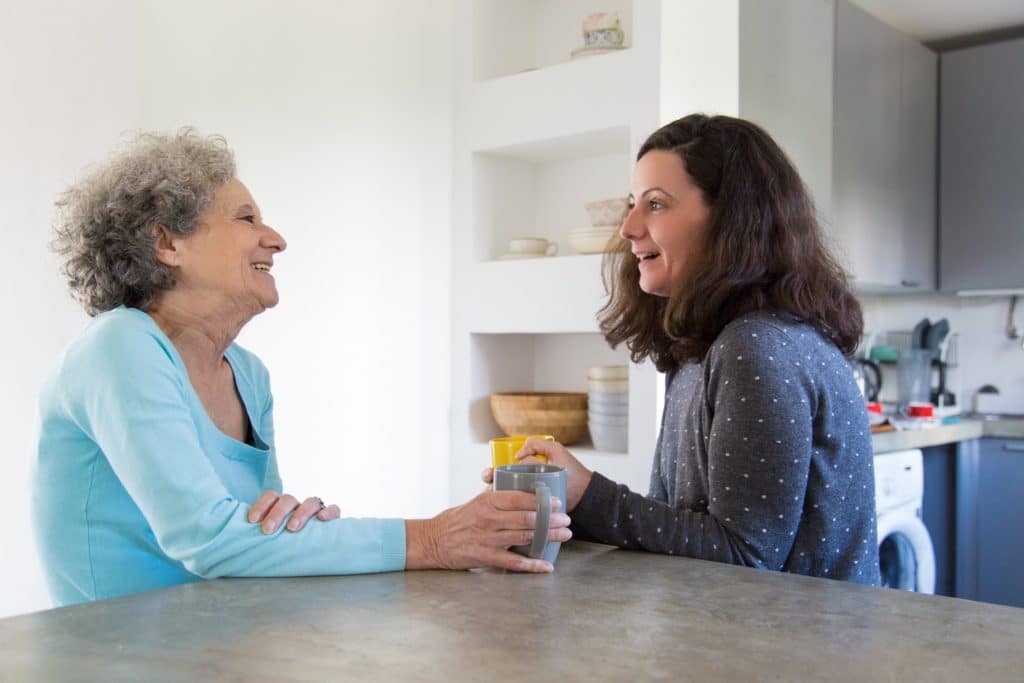Aphasia: Treatment Options
Therapy options of a Central-related speech disorder
In the case of aphasia, the medical as a Central language disorder due to brain injury is defined and, in particular, as a result of a stroke occurs, should be initiated at the earliest possible time with a professional and individually oriented language therapeutic treatment. This includes, in addition to needs-based language exercises will also be a comprehensive education for patients and relatives to deal with the communication disorder. Often the symptoms improve within the first few weeks, to a certain extent also by the self-healing forces of the body. This can be stimulated by natural remedies and alternative methods in addition.
Table of contents
A brief Overview
To aphasia therapy is also always an accurate diagnosis, along with the actual measures of treatment to individual therapy required methods. The following are the most important facts for the diagnosis and therapy of aphasia. The other article provides detailed information.
- Diagnosis: The accurate assessment of a present aphasia and their individual characteristics (see also: aphasia: types and symptoms), usually through a gentle and personal approach during a professional speech therapy be performed better than by means of the available standardized test methods. Existing difficulties in the assessment must be taken into account in every Situation, to avoid erroneous conclusions. The diagnosis should be reviewed during the duration of therapy regularly and adapted to best achieve results.
- Treatment by means of voice therapy: The Central form of therapy is a professional speech therapy, in a timely manner for the event should start. Step is initiated, the ability to speak slowly and later intense exercise units, as well as it is restored. Communication with loved ones and the environment is in parallel, is of great importance and can achieve good improvements. The duration of therapy varies and may be limited to a few weeks or years.
- Alternative forms of therapy: the healing powers of the body to support and a relaxed Situation for the life of the person Concerned and Learn to create, various alternative treatments are used. In addition to other methods such as acupuncture or various relaxation methods can find application.

Diagnosis: preparation and monitoring of the therapy
An aphasia is, as a Central disorder, and communication disorder language, an accurate diagnosis is important to plan the necessary therapy, individually and in the further course. Established standard procedures, such as the Aachen aphasia Test (AAT), can provide a sample and snapshot on the possible expression of the language deficits. Such Tests, however, can claim no General validity and must only be carried out with great caution and to interpret.
In expert circles it is recommended that such a Test is performed, if it is to be built in the Affected is already a relationship of trust has been, and this appearance represents the end of the test situation not impose an undue burden. A poorly prepared test situation can lead, for example, due to excitement, poor day-to-day or adverse query, constellations, and the actual language ability is not recorded. This results in the following faulty interpretations can have a negative impact on decisions regarding the necessity and Form of a therapy. In addition, poor results can reduce the Motivation of those Concerned and the related therapy success.
Often, the AAT will be conducted at different points in time repeated, the results are often used as a follow-up. The above-mentioned difficulties, and other problems of the assessment of persons with cerebral language disorders (as in the journal MedSach (issue 112, 04/2016)), in any type of testing or assessment of language and communication skills.
To be especially at the beginning of treatment there have been other methods chosen, the appropriate allow an accurate diagnosis and need for treatment planning, and the Concerned, gentle and trusting support. It is very helpful if the Attending all the necessary background information to be able to the personal Situation carefully to assess. These include all the medical and neurological examination results, the family situation and the social environment, as well as the current status of the communication ability with the environment. In the first therapy sessions will then attempt, through targeted conversations and other means of communication to find out how much the Affected to understand and communicate, and the extent to which they read and can write.
Since the Disorder varies greatly, a variety of individual factors is subject to, and with the time change, it is also proposed a so-called Thera Gnosticism. This is a diagnostic System, which at the same time the therapy is integrated. An initial diagnosis of language ability should be continuously complemented and modified.

Professional speech therapy as a Central form of therapy
From the diagnosis, which is carried out with the language of therapeutic Expertise, a professional speech therapy as a Central and indispensable therapy element already. An aphasia therapy should start as early as possible, but at a later date – even after years – this makes a lot of sense and can be achieved under certain conditions considerable progress.
The goal of therapy should always be individually determined in order to find the right forms of communication and to develop. However, it is primarily always in the foreground, to reach as quickly and gently as possible with the best possible communication ability. As a result, the Affected should be fetched from her initial Isolation. The way is usually less critical, as a good and trusting relationship between the Patients and therapeutic people.
To take into account is that the speech therapy, while making a significant contribution to the recovery of the communicative skills, but it is only through the support of other people in everyday life Back in their own language and even constant communication can be achieved. To other physicians, but also, and especially, close relatives, friends, Acquaintances, and the wider social environment. Through a steady and intensive exchange with the aphasic Person, the closest contact people have great influence in the language development.
The methodology does not only depend on the respective Situation and the personality of the person Concerned, but also from the individual actions of the therapeutic Person. In addition to the necessary Individual therapy, also speech therapy groups or other group meetings (for example, self-help groups, psychotherapy groups).
In the individual therapy should be helped to learn the language of the underlying processes, to communicate independently. That is, it is not words, sentences and grammar can be practiced, as it is known, for example, from the Learning of a foreign language, but the leading sets of rules are treated.
For all available methods and programs should be taken to ensure that the existing skills of the Affected stimulates and activates, as well as “locked tracks” will be released. The whole of the language behavior should be encouraged in a targeted and holistic way. An important aspect for the Thera pier success is a relaxed and laid-back learning atmosphere.
From a large Repertoire of different Exercises for learning the elements for Aphasien can be used with varying degrees of severity, and different deficits and used individually selected. This can, for example, ranks the Complete of numbers, to View and Describe images, to read from single words to a sentence, independent Writing and loud, or the Linking of sounds and movements. Each Therapy session should include, in addition to targeted Exercises, but also free talks and relaxation times.

The recognized therapist and aphasia specialist Dr. Luise Lutz, there are a number of principles, which provide crucial building blocks for a successful therapy:
- The procedure of gradually Practicing and learning,
- The use of various exercise forms and materials,
- Speech and Association of all language modalities (Speaking, reading, Understanding),
- Communication success is a proper form of language,
- Promotion of the active participation, of self-employed actions and decisions,
- Practice with the content and sense,
- Creating a relaxed and educational concentration.
Furthermore, a distinction is made between three phases, which can accompany from the very first day over a very long period of time and support:
- Activation phase: In the first weeks after the onset of aphasia, the Affected positively in their ability to communicate strengthens, and the Talk stimulated, but only slightly required.
- Disorder-specific phase of the Exercise: After a few weeks, and during the Transition of the rehab clinic for outpatient therapy are the most Affected stronger than at the beginning, and the hours of Therapy to be slowly more intense and more complex. How long this Phase lasts depends on the self-motivation and other external circumstances. In principle, can be achieved over a number of years progress.
- Consolidation phase: after a certain period of time, no speech therapy and more, instead, promotes any form of communication, and preoccupation with language in everyday life more personal skills.
This therapy stages correspond to time-in about the course of aphasia. The acute Phase lasts about four to six weeks, what is then the post-acute Phase follows, which lasts up to a year. After about a year, one speaks of the chronic Phase.
According to the guideline for the Rehabilitation aphasischer disorders after stroke of the German society for neurology (DGN) to take speech therapy daily, if possible, with an intensity of not less than five to ten hours per week. Intense interval treatments can, under certain circumstances, even after over a year of success. In this context, it was only recently in the journal The Lancet a study on the effectiveness of intensive therapy in aphasia after a stroke, the already published half a year or longer gap. The results of the University of Münster, directed studies, show marked improvement of Communications after a minimum of three weeks of treatment of ten hours per week in chronic aphasia.

Education and counseling for Affected persons and relatives
Therapeutic professional voice groups, to perform aphasia therapies include speech therapy, respiratory, speech and vocal teaching, clinical linguistics, speech therapy, and pedagogy. Also further knowledge in the field of Social and special pedagogy and psychology, in addition to the linguistic expertise can have a very positive effect on a treatment.
It may be important for the Concerned to compensate and to help, with the big changeover in life and mental stress deal. Since the whole of communicative competence is more or less severely limited, it comes in everyday with each other, often on both sides to misunderstandings and frustration experiences. This can be improved by a competent education, advice and support and lead to less problems in everyday life.
For members, it is for example important that there is a disturbance of language comprehension is by no means to be equated with a hearing loss and, therefore, a strong communication is also not a remedy. The Wait for silence for long conversation breaks, or the patient listening in an accelerated language of an aphasic Person is essential to generate even more Stress and time pressure. For the contact persons, which often means to learn in a longer process, Concerned not to interrupt. Because of this mostly well-intentioned help it is generally produced only more confusion and blockages. In order to support people with a speech disorder, and to help, it requires a large degree of understanding and Thinking.
Depending on the need and possibility of appropriate communication can solution helps, for example, in the Form of specific interview techniques, Letters, signs, Pictures, or special computers are used to facilitate the expression and Understanding of the needs.
Supporting alternative treatment options
An aphasia to a lesion of the brain is based mostly as part of the Central nervous system (CNS), often infarct, or a traumatic brain injury caused by a brain. Alternative methods of treatment can promote the natural healing process of this type of injury (particularly in the early stages). Also in dealing with the new life situation, which often leads to Stress and mental strain and subsequently, where appropriate, Fears, depression or other mental disorders, can alternative methods of healing for the victims to be helpful.
Naturopathy
The commonly used natural remedies to primarily provide detoxifying, milieu regulating came to an end, and actions. This can, for example, by means of a phytotherapy, a classic take-out procedure, or a regulating milieu therapy can be achieved. A detoxification of the body, among other things, by the rejection of therapy and activation of the detoxification organs (liver and kidneys), through the duration of medication with blood-thinning and blood pressure-regulating drugs. These drugs are in many cases due to an increased stroke risk is essential.
Homeopathy
Homeopathic Constitutional remedy to be determined in the traditional or process-oriented homeopathy, individually according to the respective physical and psychological symptoms and to clearly specific diseases assign. Afterwards, Dr. med. Karl-Heinz Friese, author of the book “homeopathy in otorhinolaryngology”.
According to Dr. Friese, in his medical practice, school medicine and complementary medicine, in General, a treatment with Arnica in case of an aphasia after a stroke, a positive influence. Arnica (Arnica montana), also known as a mountain rental, is a proven wound healing agent, which is used in the case of physical injuries and bruises just like in the case of injury, shock, and psychological trauma. The latter can be, for example, emotional stress States, which can also be caused by a sudden loss (here: loss of speech).
The recommended therapy is to start with Arnica D12 and later with a high potency to continue. Of self-medication with high potencies, and are not recommended, however urgent, it should take place in this form of therapy is always a professional medical or homeopathic advice and support.
Acupuncture
The use of acupuncture, an ancient form of therapy from the Traditional Chinese medicine (TCM), aims at a harmonisation of the energy flow. By the activation of nerve fibers, which in turn affect also the spinal cord, midbrain, and large areas of the brain, it comes to the release of neuro-hormones with stimulating effects.
Prof. Dr. M. Ptok, head of the clinic for phoniatrics and pediatric audiology in Hanover, reported in the journal “language-voice-hearing,” (issue 31(3)/2007) results of Chinese scientists to a positive effect of acupuncture, on the ability of the language in the existing aphasia. In the case of a large part of the Examined after acupuncture treatments, improvements for certain were recorded according to the image. In particular, in the case of a motor aphasia this seems to be, therefore, an effective add-on treatment.
In understanding disorders (sensory aphasia) Speech, by contrast, are, according to scientific findings, rather, biofeedback method, wherein the Affected by the feedback of their own physiological processes (such as brain activity and heart rate) will help to improve the disturbed self-perception.

Relaxation techniques and hypnosis
For speech therapy, it is important to create a relaxed atmosphere for a good learning success. The General relaxation effect and the reduction of stress reactions in the Affected cause that you get better at your own language access. To home remedies for stress offer removal as an additional supportive measures, including a variety of relaxation methods such as Progressive muscle relaxation (PMR), autogenic Training (AT), Meditation and breathing exercises.
In the hypnotherapy, as a state of relaxation arises, can be excited, in addition, symbolically, and pictorially in the flow of speech, for example, with the idea of a flowing body of water, which met with obstacles and those “fluent” managed. Because in hypnosis with unconscious processes, can also benefit people with severe intellectual loss, and decreased concentration and memory retention of this type of treatment (Revenstorf, and Burkhard, 2001).
Other alternative therapy approaches
A number of other, in particular, pedagogically and psychologically oriented Alternatives are also used with success in aphasia treatment. This includes, for example, animal-assisted therapy and garden therapy. The relaxation effect and healing effect of nature of support on the way “back to the language”.
A healthy, wholesome and natural as possible diet, with adequate intake of water promotes General health and supports the necessary performance, and Regeneration of the body. Certain vitamins and minerals can also be used as a dietary Supplement, in order to optimize the metabolism. (jvs, cs)
Literature and further information:
- Friese, K.-H. (2005): homeopathy in the ENT-medicine: Targeted treatment with proven indications. 4. Edition. Hippocrates Verlag, Stuttgart.
- Lutz, L. (2010): The Silence Understand – About Aphasia. 4. Edition, Springer-Verlag Berlin Heidelberg.
- Ptok, M. (2007): relaxation therapy and acupuncture in the case of communication disorders. Language-Voice-Hearing, 31 (03), Thieme, Stuttgart, New York.
- Revenstorf, D., and Burkhard, P. (EDS.) (2001): hypnosis in psychotherapy, psychosomatics and medicine. Springer-Verlag Berlin Heidelberg.
- Society for aphasia research and treatment, e. V.
- Association of aphasia e. V.



